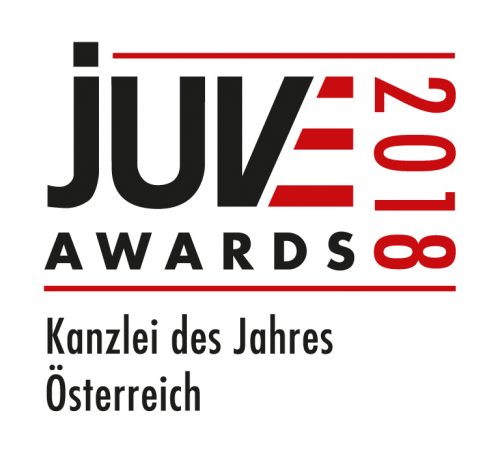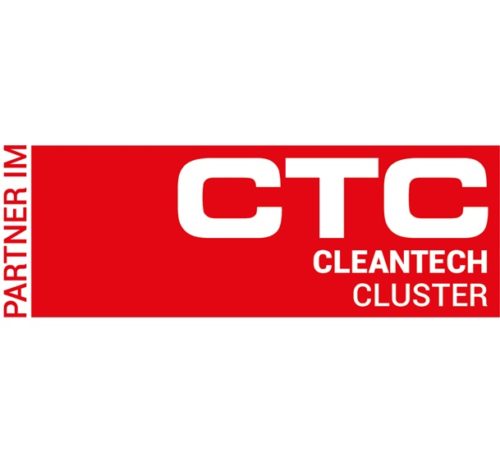Whistleblowing reporting systems
We help with implementation and processing!


The variety of (capital) company forms has increased in Austria since January 1st, 2024: Instead of a limited liability corporation (GmbH) or a joint stock corporation (AG), a FlexCo (often also referred to as “Flexible Kapitalgesellschaft” or “FlexKapG”) can now also be founded.
This new corporate form is characterized by freedom of legal arrangement and less bureaucracy. In contrast to the limited liability corporation, the FlexCo allows third parties (e.g. employees) to participate in the company’s success through so-called “enterprise value shares.” The minimum capital contribution per shareholder is just EUR 1.00. Shareholders who are entitled to more than one vote can also exercise their voting rights inconsistently. No notarial deed is required to transfer “classic” business shares. Unless the FlexKapGG provides for any deviations, GmbH law applies to the FlexCo; it is therefore very similar to a limited liability corporation, but more flexible in other areas.
Start-ups in particular, but also other companies, can benefit from (re-)founding a FlexCo. The straightforward and cost-effective transfer of shares also makes the FlexCo attractive for energy communities, among others.

The necessity of accelerating the expansion of renewables and the indispensable expansion of the grid for this purpose has been on everyone’s lips for some time. The Renewable Energy Expansion Acceleration Act (“EABG”), which implements the European Renewable Energy Directive (see the recent RED III) and is expected to come into force this year – and was already announced at the beginning of last year – offers the chance of real relief. In addition to all calls for acceleration, for a successful project implementation, the project- and process management-specific “standard repertoire” (communication, teamwork between technical and legal experts, realistic scheduling, clear structures, etc.) must continue to be applied. We will be happy to assist you in all these matters again this year.

In 2024, the European Union is expected to adopt a legal framework for the regulation of artificial intelligence – the AI Act. This regulation, which is directly applicable in all member states, aims to establish ethical principles and safety standards for AI systems. AI applications in high-risk areas such as health, transport and public administration are to be monitored and controlled. Three categories of AI systems are defined for this purpose: unauthorized systems, high-risk systems, and low-risk systems. High-risk systems must meet specific requirements, including transparent use, data quality and independent assessments. The regulation also aims to protect citizens from discriminatory AI practices, promote transparency of AI decisions, and make the use of AI visible. The AI Act reflects the EU’s desire to find a balanced approach to the use of AI, promoting innovation while also addressing ethical and safety concerns. Will the AI Act actually achieve this or is all of this just overshooting the mark once again? In any case, this comes with an additional to-do for companies, as it can be assumed that hardly anyone will be able to avoid using AI in the near future.


As determined by the Constitutional Court (G 265/2022) in December following the ECJ (C-37/20 and C-601/20), unrestricted public access to the register of beneficial owners is unconstitutional. The Supreme Court thus confirms the restriction on access to the register that was introduced last fall. Such access is now only permissible if there is a legitimate interest related to the prevention of money laundering or combating terrorism or when entering into a business relationship, such as renting or acquiring a primary residence, real estate transactions and acquiring shareholdings / assigning business shares.
As usual, we will be happy to advise you and can, of course, access extracts from the register for you under these conditions.


The Threshold Value Regulation 2023 (Schwellenwerteverordnung 2023), which, compared to the BVergG 2018, provides for increased threshold values also for direct awards, has been extended and will apply beyond December 31st, 2023.
Furthermore, a comprehensive amendment to the BVergG 2018 is planned: In particular, green procurement is to be strengthened, for example by requiring ecological aspects to be taken into account already as suitability criteria rather than only as award criteria. The amendment is also intended to bring more bidder-friendly regulations and changes in the area of framework agreements.
At the EU level, we will be more concerned with the practical application of the Foreign Subsidies Regulation, whose public procurement regulation regarding prior notifications or declarations of foreign financial contributions have been in force since October 12th, 2023.

The European Commission’s current draft directive on harmonizing certain aspects of insolvency law [COM (2022) 702 final] is intended, among other things, to simplify proceedings for microenterprises. According to the definition, this affects companies with fewer than 10 employees and an annual turnover or balance sheet total of less than EUR 2 million. In view of the Austrian corporate structure, which is heavily dominated by SMEs, a large proportion of corporate insolvencies would fall under this regulation. What seems particularly problematic is that an insolvency administrator would only be appointed upon application. If this is not the case, both the assessment of the claim and, possibly, the sale of the debtor company would be carried out by the debtor themselves (opening the door to potential abuse). Particularly in the case of micro-insolvencies, rescission claims and liability claims against acting bodiesare often the most significant factors that can bring about the highest possible satisfaction for creditors. Without a liquidator, the detection of such claims is hardly conceivable. Therefore, it can be assumed that the implementation of the current proposal would significantly disadvantage creditor interests in the long term.


The Corporate Law Digitalization Act 2023 (GesDigG 2023) now stipulates that “disqualified persons” may not be entered in the commercial register as managing directors of a limited liability corporation (GmbH) or as board members of a joint stock corporation (AG) or a cooperative. A person is considered “disqualified” if a (domestic or foreign) court has sentenced them to a term of imprisonment exceeding six months (which became final after December 31st, 2023) for certain, exhaustively listed “business-related” offenses (e.g. fraud, embezzlement, misuse of subsidies, fraudulent crida, money laundering, tax fraud). The examination of whether a disqualifying conviction exists has to be carried out ex officio by the court, which is why in future, the nationality and country of residence of people who do not have a valid registration in Austria must also be stated in the company register application. In the future, we will therefore ask our clients in advance whether there is a disqualifying reason, and every entrepreneur/managing director will have to keep an eye on whether a disqualifying conviction occurs even after the respective representative body has been entered in the company register. In such a case, the person concerned must immediately declare their resignation or the company/cooperative must ensure immediate dismissal (otherwise, deletion will take place ex officio).

The super election year 2024 kicks off in Austria with two parliamentary investigating committees. On January 11th, 2024, the “COFAG Investigating Committee” at the request of the SPÖ and FPÖ as well as the “Red-Blue Abuse of Power Investigating Committee” initiated by the ÖVP, formally began their work. This could lead to tensions between the findings from the parliamentary investigating committees and the redistribution of political power.
But that’s not all: The parliamentary investigating committee, as the most important instrument of parliamentary control, is facing a groundbreaking reform in 2024. After years of intense political debates, it appears that live broadcasting of the parliamentary investigating committees is imminent. The measures currently being negotiated aim to give citizens a more direct insight into political investigative work. For the time being, this innovation is to be implemented without a comprehensive reform of the procedural rules for parliamentary investigating committees. Overall, this deeper insight into the work of political bodies is intended to strengthen democracy and minimize prejudices against the work of parliamentary investigating committees. It remains to be seen whether and in what form these far-reaching innovations will be implemented. In addition to increasing transparency and citizen participation, more effective legal protection for those providing information is also essential.


In its sixth year of application, the EU General Data Protection Regulation (GDPR) is to be supplemented by a regulation on procedural provisions for the growing number of cross-border cases. This is intended to improve cooperation between the individual member state data protection authorities in order to strengthen the overall effectiveness of the GDPR enforcement.
For such cases, aside from provisions on the cooperation between authorities, it is also planned to establish a minimum standard of procedural rights for those involved, including rights to be heard or to inspect files. At the same time, the EU Commission’s draft contains provisions on the protection of business and trade secrets in the context of file inspection. In addition, the 72-hour notification period for data protection incidents should under no conditions begin on a non-working day in order to enable appropriate action to be taken. It is not yet known when the regulation will come into force. We will keep you updated on this matter.


With a good dose of optimism, Austria could receive a new Electricity Industry Act (ElWG) before the end of this year; the corresponding draft has been published recently. As a further component of the energy transition legislation, so-called “prosumers” will finally be able to enter the energy market by selling excess electricity to other energy consumers, for example through “peer-to-peer contracts.” This enables companies to engage in “energy pooling.” In addition to strengthening the rights of energy consumers, the ElWG is also intended to ensure a more flexible grid design. For example, it will be easier to implement direct lines, “flexible system access” will counteract regional “feed-in stops” and virtual metering points will offer new possibilities for connecting generation plants. In combination with the planned Renewable Energy Expansion Acceleration Act (EABG), this will bring new power for the energy transition.

In 2024, the topics of sustainability and environmental protection will continue to play a major role not only in societal and political contexts but also increasingly in the legal system. New regulatory requirements in the areas of sustainability reporting, climate protection, EU supply chain law, whistleblowing and more will pose significant challenges for all economic players.
To avoid liability risks and reputational damage, companies should systematically assess their individual risk landscape and take appropriate measures in a timely manner. Particularly for Austrian SMEs and public legal entities, I still see a great need to catch up in order to meet mandatory legal requirements and to be able to take advantage of the associated opportunities.

Everything flows, even competition law. At the national level, we are closely monitoring a possible change in the practice of fines in antitrust law. At the same time, the protection of leniency applicants is under pressure – just think of the disclosure of documents through mutual assistance (the ECJ could issue a groundbreaking ruling on this this year), the scope of publication of antitrust court decisions or the high requirements for “self-cleaning” under public procurement law [apropos – an amendment to the Federal Procurement Act (BVergG) is also pending].
In subsidy law, the increase of the de minimis thresholds will hardly bring any noticeable changes. However, companies, consultants, and authorities will gain initial experiences in dealing with notifications under the Foreign Subsidies Regulation – readjustments cannot be ruled out.
This article is for general information only and does not replace legal advice. Haslinger / Nagele Rechtsanwälte GmbH assumes no liability for the content and correctness of this article.
24. January 2024






